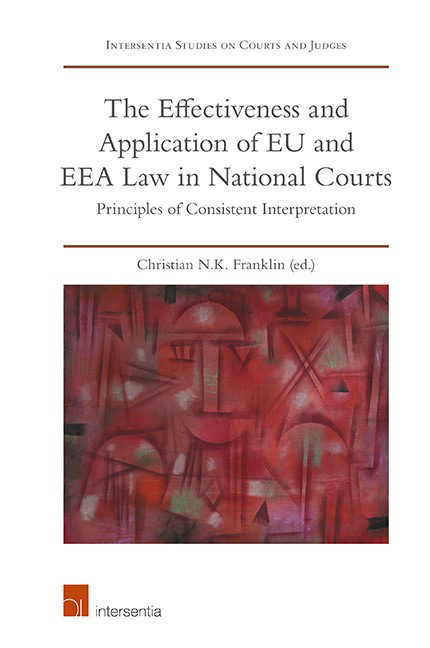 The Effectiveness and Application of EU and EEA Law in National Courts
The Effectiveness and Application of EU and EEA Law in National Courts Poland
Published online by Cambridge University Press: 31 January 2019
Summary
INTRODUCTION
In Polish legal literature, quite a few analyses of the application of the principle of consistent interpretation by Polish courts and by public administrative bodies can be found. Those analyses concern the period both before and following Poland ‘ s accession to the European Union (EU) on 1 May 2004. Yet, there are several different reasons why the principle of consistent interpretation remains an attractive object of research and why legal scholars continue (and should continue) to discuss its application.
With the view of the role of the Constitutional Tribunal in the Polish court system, it is bothessential and thought-provoking to follow the ongoing constitutional crisis. As observed by a number of national and international observers, the crisis poses a serious threat to the rule of law, democracy and human rights protection. The current government of the Law and Justice Party has been, at an impressive pace and with a stunning determination, implementing an ambitious and comprehensive plan of amending the rules governing the Polish court system on all its levels. As a result, the courts and judges have become dependent on the government, in particular, the minister of justice, and on the Parliament, where the governing party has a majority.
Thus far, the question of whether one may observe or expect any change in the Tribunal ‘ s practice with regard to the principle of consistent interpretation and, whether this could have any influence on the Polish courts, remains open. Yet, in light of the fact that the openly EU-sceptical government keeps proposing and implementing further amendments concerning the court system, one might have one more reason for following closely the development of the Polish jurisprudence with an “ EU element “.
BACKGROUND INFORMATION
The Republic of Poland has been a member of the EU since 1 May 2004, and a member of the Schengen area since 21 December 2007. Its total area of 312,679 km 2 makes Poland the ninth largest country in Europe. With a population of 38,005,614 (2015), which amounts to 7.5 per cent of the total EU population (2015), it has 51 seats in the European Parliament.
- Type
- Chapter
- Information
- The Effectiveness and Application of EU and EEA Law in National CourtsPrinciples of Consistent Interpretation, pp. 451 - 494Publisher: IntersentiaPrint publication year: 2018


